Earth
Sign up for our newsletter
We summarize the week's scientific breakthroughs every Thursday.
-
 Ecosystems
EcosystemsArctic melting may help parasites infect new hosts
Grey seals and beluga whales encounter killer microbes as ranges change.
-
 Environment
EnvironmentHow oil breaks fish hearts
Hydrocarbons that spill into oceans stifle the beat of tuna cardiac cells.
By Beth Mole -
 Earth
EarthThe Sixth Extinction
On only five occasions in Earth’s long history has a large fraction of the planet’s biodiversity disappeared in a geological instant. But, journalist Kolbert reminds us in her new book, we are well on our way to making it six.
-
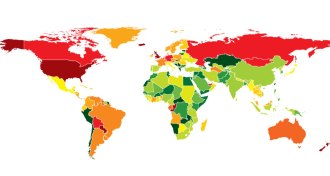 Climate
ClimateBiggest climate warmers
The United States, China, Russia, Brazil, India, Germany and the United Kingdom are responsible for more than 60 percent of the 0.74 degree Celsius rise in global average temperature observed from 1906 to 2005.
-
 Climate
ClimateStrong winds may have waylaid global warming
Gusts over the Pacific Ocean may have stashed heat underwater since 2001.
By Beth Mole -
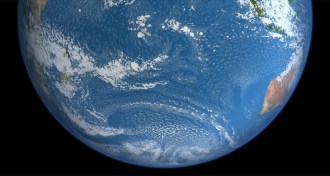 Climate
ClimateWeather patterns over Southern Hemisphere have a regular pulse
Variations in energy and rainfall over the Southern Hemisphere follow a pattern that repeats every 20 to 30 days.
-
 Earth
EarthAmmonite jaws provide a window into ancient climate
Temperature of marine environment can be determined from cephalopod fossils.
-
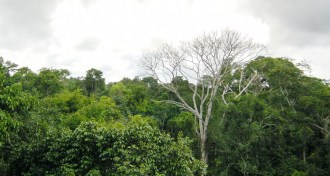 Ecosystems
EcosystemsAmazon doesn’t actually go green in dry seasons
An optical illusion in satellite data made forests appear to grow faster.
By Meghan Rosen -
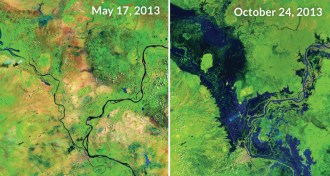 Earth
EarthEye in the sky
With its free Images of Change iPad app and online gallery, NASA makes the aerial perspective available to all, with results both stunning and disturbing.
-
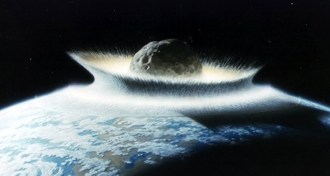 Earth
EarthEighth century carbon spike not from comet impact
The space rock would have to have been 100 kilometers across and 100 billion to 1,000 billion tons, leaving a disastrous impact not supported by geological or written records.
-
 Animals
AnimalsWindows may kill up to 988 million birds a year in the United States
Single-family homes and low-rise buildings do much more damage than skyscrapers.
By Susan Milius -
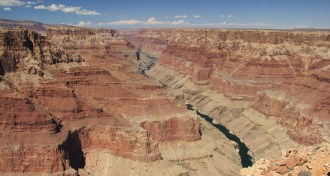 Earth
EarthGrand Canyon’s origin dated to 6 million years ago
Even though parts of the canyon are old, the chasm could not have taken on its grand form until erosion from the Colorado River connected all of the smaller canyons, which was roughly 6 million years ago, scientists argue.